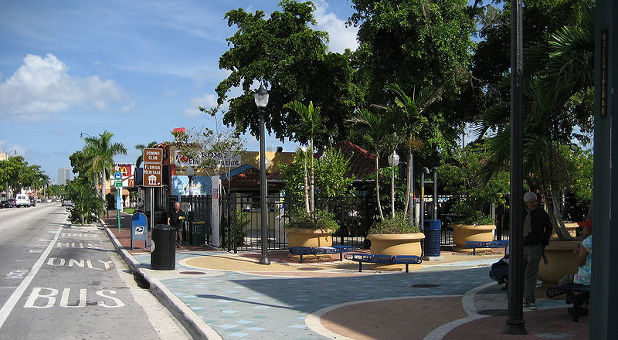A New Generation: Cuban Vote Up for Grabs?
More than 800,000 Cubans live in South Florida. You’ll find them sipping small cups of strong coffee in the morning and late afternoon and helping to drive the local economy in upscale shopping and business districts.
In what’s known as “Little Havana,” older Cubans flock to the aptly named Domino Park, rain or shine.
For years, the Republican Party has relied on the Cuban vote in Florida, allowing it to lock up the state. But the younger generation doesn’t appear to share the same party loyalty or political concerns as their Cuban-born parents.
A Cuban-American Divide
“The older, the exile community that came in ’59, in the ’60s was more focused on a real single mission, which was getting back to Cuba,” Jose Fuentes explained.
Fuentes’ father emigrated from Cuba, so he can speak personally about younger Cubans. As a government lobbyist, Fuentes also speaks professionally and says the up-and-coming generation brings a different set of values to the table.
“We want to hear that you have a good tax code that’s helping working families,” he explained. “We want to know that you’re doing better things for education.”
New polling shows a political divide among Cuban-Americans, with the younger generation less concerned about U.S. policy toward Cuba and more motivated by domestic concerns.
It makes sense to Al Cardenas, former head of the Florida Republican Party and chairman of the American Conservative Union.
“Cuban-Americans, when we first came to America said, ‘Look, Republicans are against Communism. They’re for liberty. They’re for freedom. We’re with them,’ ” he told CBN News. “Now, they like what Republicans stand for but they’re also looking closely at the individual and what they stand for.”
A New Political Equation
That may explain why in 2012, Joe Garcia became Florida’s first Cuban-American Democrat elected to the House. It also could explain why a record number of Cuban voters turned out for President Barack Obama that same year and why many young Cuban-American professionals like J.C. Daire consider themselves more liberal than their parents.
“I think my parents are a little more conservative, a little more right-wing than I am,” he said. “But also because of their personal situation coming from their exile from Cuba during the whole Castro administration takeover.”
Daire said he’s a moderate, tilting left on personal issues but the economy is still his bottom line.
“I really focus on the candidates that actually really focus on more free enterprise, more capitalism,” he said.
Analysts call it a subtle political shift that is worth watching. Latin American expert and Regent University Executive Vice President Dr. Paul Bonicelli said that the Republican Party should be concerned.
“The first shock for the GOP is they never had to worry about it and now you have to,” he told CBN News. “And it’s not just worry like ‘keep me up at night.’ It’s now you have to spend more money on an area that was a lock.”
The political equation looks like this: Cubans are key to Florida’s Hispanic vote. Florida’s Hispanic vote is key to winning the state, and the state leads to the White House. Florida’s 29 electoral votes are the fourth most in the country, making it a major battleground state.
Shifting American Policy?
In addition to this impact on voting, young Cubans could ultimately affect U.S. policy toward Cuba.
“The older generation of Cubans, to which I belong, voted much more on the Cuba issue and they felt much stronger about Cuba. The younger generation is not as passionate,” Dr. Jaime Suchlicki, director of the Institute for Cuban and Cuban-American Studies at the University of Miami, said.
“They’re like a lot of younger Americans,” Bonicelli said. “They don’t want to listen to their parents and grandparents. They want to strike out on their own. They have a different point of view and that explains a lot of the apathy towards the anti-Castro movement.”
Part of that turnaround can be seen in a recent Atlantic Council poll showing 64 percent in Miami favor normalizing U.S. relations with Cuba.
It could also be the reason why President Obama’s handshake with Cuban President Raul Castro in December made few waves. In the past, Cuban-American watchers say such a move could have led anti-Castro activists to protest in the streets.
For now, the Cuban vote remains one in transition, representing a new-found opportunity for Democrats and a new concern for the GOP.
















































